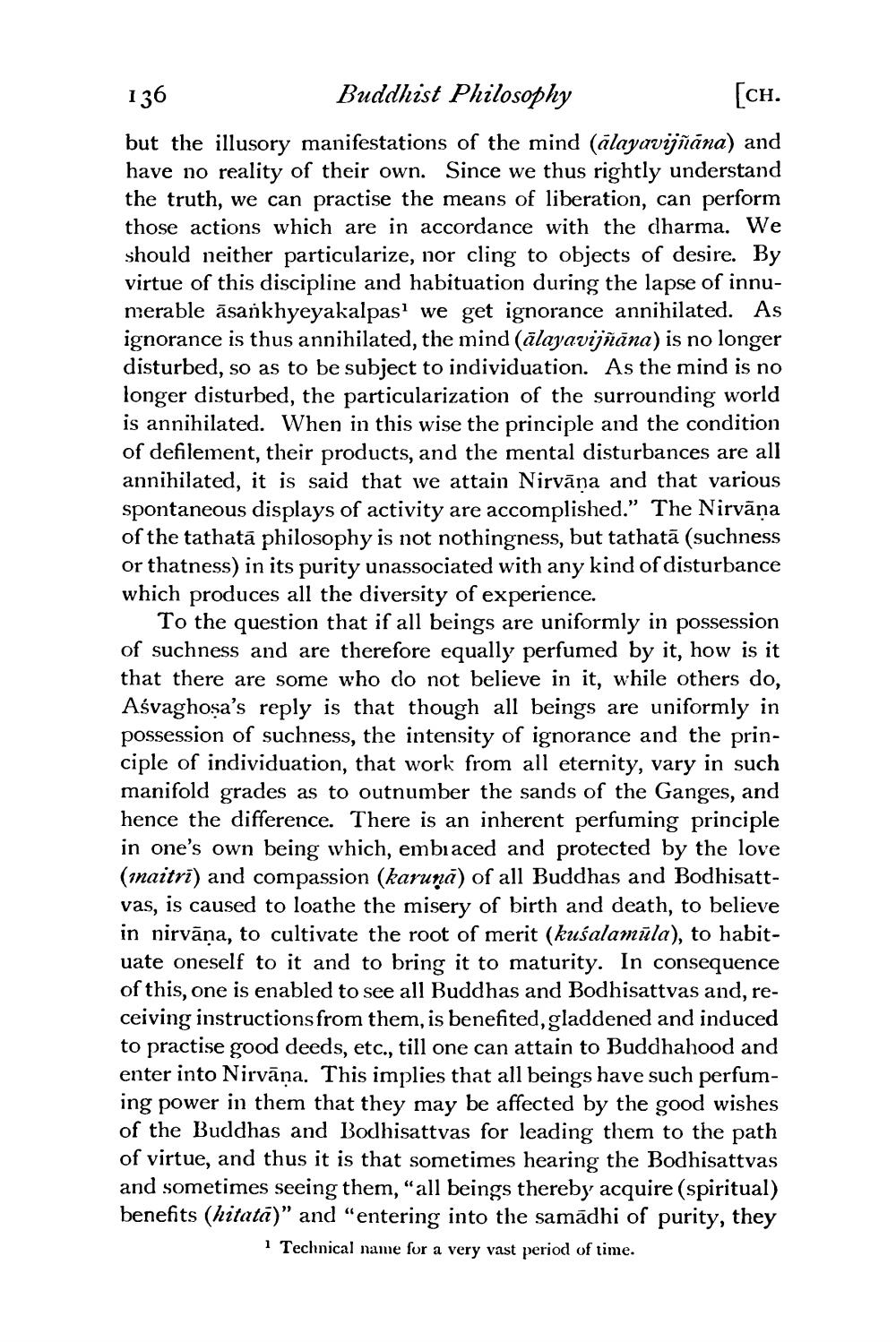________________
136
Buddhist Philosophy
[ch. but the illusory manifestations of the mind (ālayavijñāna) and have no reality of their own. Since we thus rightly understand the truth, we can practise the means of liberation, can perform those actions which are in accordance with the dharma. We should neither particularize, nor cling to objects of desire. By virtue of this discipline and habituation during the lapse of innumerable āsankhyeyakalpas! we get ignorance annihilated. As ignorance is thus annihilated, the mind (älayavijñāna) is no longer disturbed, so as to be subject to individuation. As the mind is no longer disturbed, the particularization of the surrounding world is annihilated. When in this wise the principle and the condition of defilement, their products, and the mental disturbances are all annihilated, it is said that we attain Nirvāna and that various spontaneous displays of activity are accomplished.” The Nirvāņa of the tathatā philosophy is not nothingness, but tathatā (suchness or thatness) in its purity unassociated with any kind of disturbance which produces all the diversity of experience.
To the question that if all beings are uniformly in possession of suchness and are therefore equally perfumed by it, how is it that there are some who do not believe in it, while others do, Ašvaghosa's reply is that though all beings are uniformly in possession of suchness, the intensity of ignorance and the principle of individuation, that work from all eternity, vary in such manifold grades as to outnumber the sands of the Ganges, and hence the difference. There is an inherent perfuming principle in one's own being which, embiaced and protected by the love (inaitri) and compassion (karunā) of all Buddhas and Bodhisattvas, is caused to loathe the misery of birth and death, to believe in nirvāna, to cultivate the root of merit (kusalamula), to habituate oneself to it and to bring it to maturity. In consequence of this, one is enabled to see all Buddhas and Bodhisattvas and, receiving instructions from them, is benefited, gladdened and induced to practise good deeds, etc., till one can attain to Buddhahood and enter into Nirvāņa. This implies that all beings have such perfuming power in them that they may be affected by the good wishes of the Buddhas and Bodhisattvas for leading them to the path of virtue, and thus it is that sometimes hearing the Bodhisattvas and sometimes seeing them, “all beings thereby acquire (spiritual) benefits (hitatā)" and "entering into the samādhi of purity, they
i Technical name for a very vast period of time.




